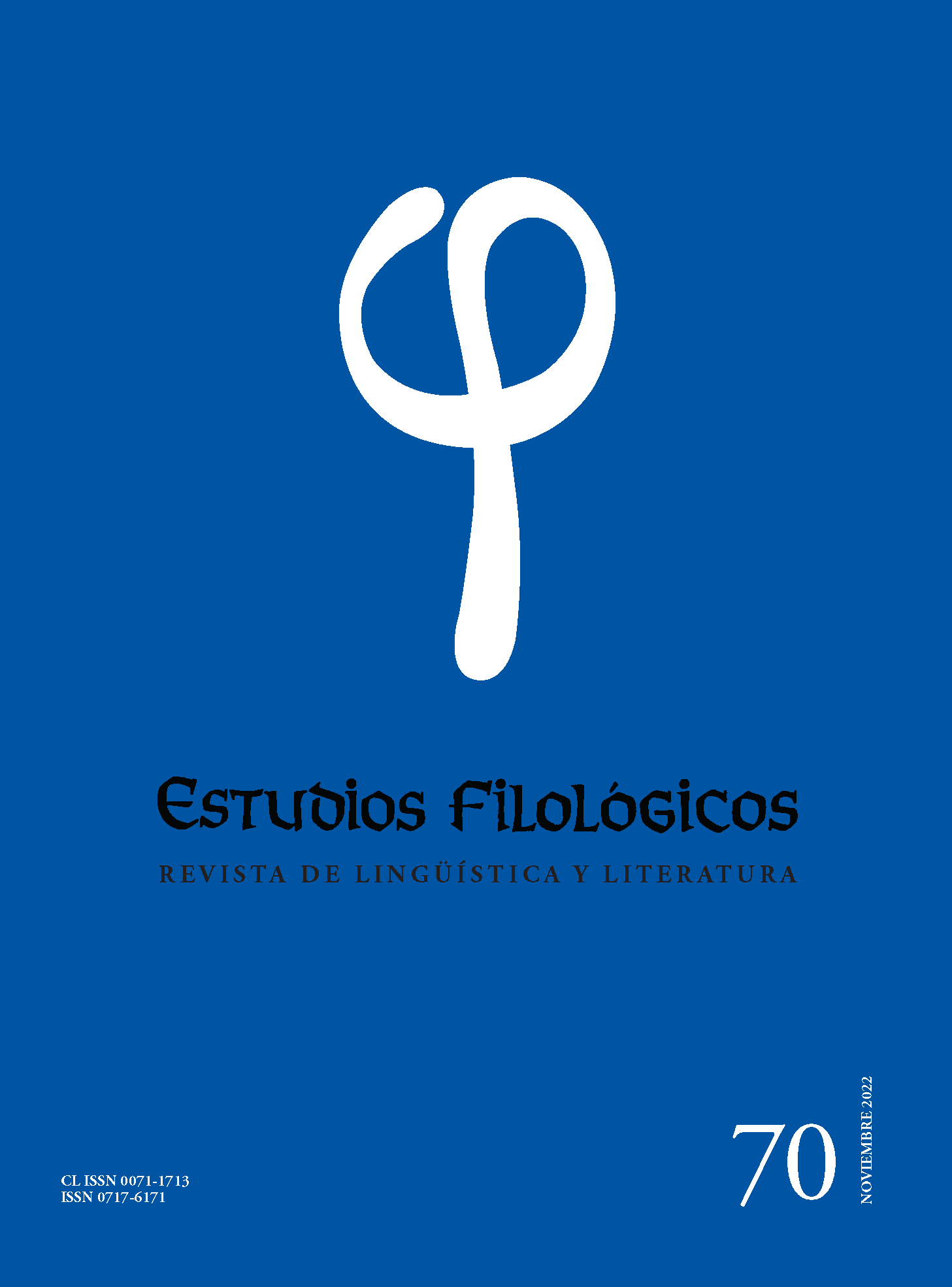Irony and temporalities of revolution and counterrevolution in the Chilean Unidad Popular narrative
Main Article Content
Abstract
This article studies the representation of revolution and counterrevolution in two novels written during the Chilean Popular Unity: Moros en la costa (1973) by Ariel Dorfman and Batman en Chile (1973) by Enrique Lihn. In addition to being set during the UP itself, they depict revolution and counterrevolution in permanent tension. In order to understand them, these narratives will be illuminated from two different elements. On the one hand, a textual element, irony as a procedure of juxtaposition and intermediate distancing. On the other hand, the notions of temporalities with which these narratives articulate the events and changes during the UP. Intermedial irony and temporalities are strategies to maintain these literary writings as a place of mediation and critical and aesthetic articulation.


 https://orcid.org/0000-0002-9372-1645
https://orcid.org/0000-0002-9372-1645